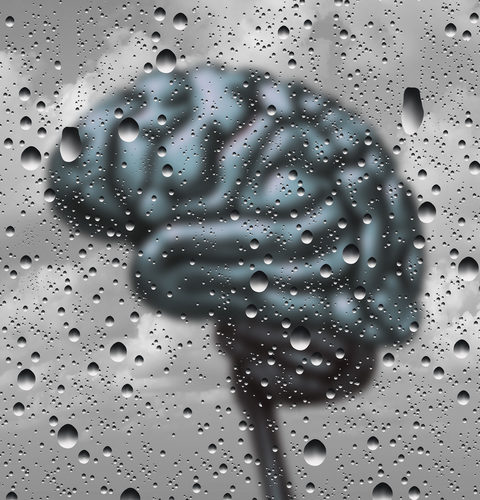Alcohol dependence, alcoholism, alcohol addiction or alcohol use disorder — no matter which name it goes by, addiction to alcohol is a chronic disease that requires care and management. Addiction is characterized by compulsions and uncontrollable dependencies, meaning someone suffering from addiction has a deep physical need for alcohol despite knowing it isn’t a good decision. In fact, many of those addicted to alcohol will continue to drink even if it leads to serious legal or health problems — the consequences of their actions don’t outweigh their body’s cravings. The reason this happens is that abusing alcohol can fundamentally change the way your brain works, which results in your body having difficulty functioning without alcohol.
ALCOHOL ADDICTION IN THE BRAIN
Years’ worth of research tells us that alcohol abuse is damaging to the brain. Even drinking responsibly can have detrimental effects on your cognitive abilities — intoxication causes eyesight and speech impairment, lowers motor functions and even leads to temporary memory loss. All of this happens because alcohol interrupts the way your brain cells communicate with each other. Your brain cells use chemicals called neurotransmitters to determine every function in your body from muscle movements to emotions. Alcohol interferes most with two neurotransmitters in the brain: glutamate and GABA.
Glutamate is excitatory, which means that it makes your brain more active. When you drink alcohol, glutamate production is slowed down. Chronically abusing alcohol leads to an imbalance of glutamate in your brain; researchers believe that when the effects of alcohol wear off, the influx of glutamate can contribute to alcohol cravings. Changes in your brain’s glutamate levels can cause your body to physically feel like it needs alcohol, even when you know it’s not good for you.
GABA is inhibitory, so instead of activating the brain, it dampens certain functions. Normally, glutamate is helpful for calming the brain down in moments of fear or anxiety, establishing sleep patterns and managing emotions. When you drink, GABA is overproduced, resulting in the fuzzy, somewhat sedated state we associate with being drunk. In the long run, your brain becomes dependent on GABA to keep it from becoming overactive; without alcohol, this overactivity can make you feel anxious or paranoid. Additionally, this overactivity can result in brain cells dying and causing permanent damage.
Alcohol also affects your brain’s rewards centers — those struggling with addiction will almost instantly feel “better” when they drink because their brain has become conditioned to feel pleasure when they consume alcohol. Addiction to alcohol is often linked to other health concerns as well, like depression and anxiety, liver and kidney disease and malnutrition.


TREATING ALCOHOL ADDICTION
Since alcohol has so many effects on your body, it is important to seek treatment for addiction with healthcare professionals who can anticipate your physical and mental reactions when you stop drinking. Alcohol withdrawal can be difficult, and even painful and dangerous. Depending on the length and severity of your addiction, you may require medical treatment while you go through detox. At The Springboard Center, we can provide in-house medical detox treatments to give you privacy during this difficult time and so that you can seamlessly transition from detox to therapy.
After your detox, physical and mental therapies are necessary to help you regain your health. Eating well and exercising help your brain and body reestablish normal functions. Mentally, talking through your addiction and its accompanying toll on your thoughts and emotions leads you to discover the underlying cause of your addiction and identify ways to avoid relapse. The Springboard Center’s staff of licensed, experienced addiction recovery counselors are here to help you create healthy habits and work through the emotional impact of your addiction. Our services in Midland, TX include:
- Group and individual therapy
- Residential treatment
- Intensive outpatient treatment
- Family counseling
CONTACT THE SPRINGBOARD CENTER
Springboard is proud to be the premier addiction treatment center for the Permian Basin region of Texas, New Mexico and Oklahoma. We treat men and women over the age of 18 for addiction to drugs and alcohol, and we can offer medically-assisted detox at our facility and in partnership with local healthcare centers. If you or your loved one is struggling with addiction, contact us to find out if our programs are right for you. Call us today at our office in Midland, TX 432-620-0255 to learn more about the resources available to you during your recovery.

